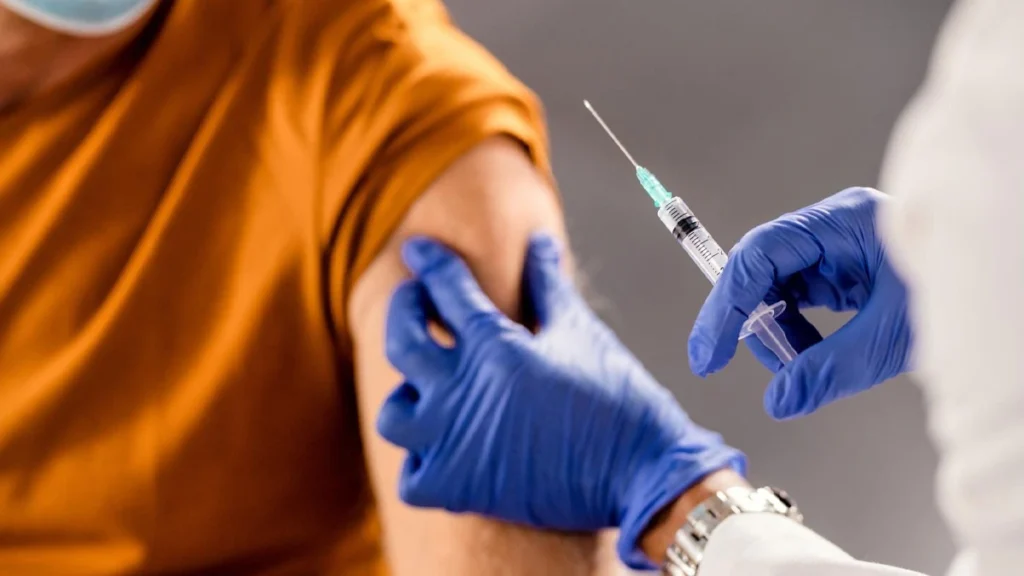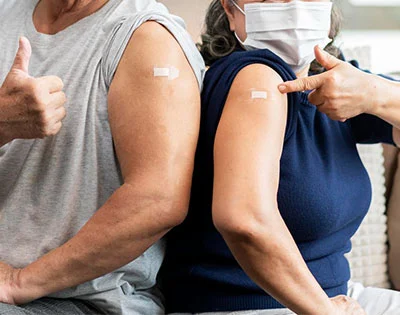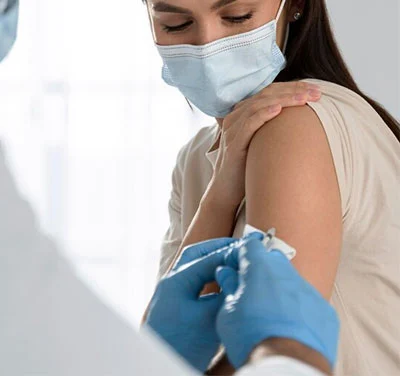
Immunizations Schedule for Adults: Vaccine List and Timeline
When we think of vaccine schedules, we tend to focus on the ones for babies and young children. It makes sense as their little bodies need protection against some pretty nasty diseases right from the start.
But did you know adults also need certain immunizations to maintain their resistance against infections and serious illnesses? Just because we’re all grown up doesn’t mean we’re invincible!
In fact, getting the recommended adult vaccines per the latest schedule is a crucial step in protecting our own health while also safeguarding vulnerable people around us (like young kids, the elderly, or those with weakened immune systems).
So let’s go over the list of important adult immunizations, when you should get them, and why they’re so vital for keeping you and your community shielded.
Table of Contents
ToggleInfluenza (Flu) Vaccine
Let’s start with the biggie – the annual flu shot. Influenza is far more than a bad cold, capable of causing serious complications like pneumonia, bronchitis, and even heart problems in higher-risk individuals. During severe seasons, flu results in hundreds of thousands of hospitalizations and tens of thousands of deaths.
To avoid becoming deathly ill or spreading flu to loved ones, doctors recommend virtually all adults (especially those over 50) receive an annual flu vaccine by the end of October, before peak season hits. Healthcare workers and pregnant women are also strongly urged to get it.
We’re all too familiar with COVID thanks to the past few years of the pandemic. While most otherwise-healthy adults can now receive an updated bivalent booster annually, the COVID vaccine remains especially crucial for protecting our older adults, immunocompromised individuals, pregnant people, and those with underlying health conditions.
The ICMR recommends staying on schedule with your COVID boosters to maintain the highest level of immunity against severe disease. Being up-to-date also reduces transmission risks to vulnerable groups.

Tdap (Tetanus, Diphtheria, Pertussis)
Even healthy adults need a Tdap booster shot every 10 years to preserve immunity against these three dangerous bacterial diseases. The diphtheria portion is particularly important in bolstering protection for ourselves and infants who haven’t yet completed their primary vaccine series.
Women should also receive a dose during each pregnancy, optimally between 27-36 weeks gestation. This allows antibodies to transfer and help protect newborns initially against whooping cough (pertussis).
Pneumococcal Vaccine
Pneumococcal disease encompasses infections like pneumonia, meningitis, and bacteremia caused by streptococcus bacteria. While somewhat rare overall, pneumococcal complications can become very serious, even life-threatening for certain groups.
For that reason, the ACIP recommends all adults over 65 receive pneumococcal polysaccharide vaccine–PPSV23. Certain younger adults under 65 may also need these shots if they have specific underlying conditions or weakened immunity.
Hepatitis B Vaccine
Despite common misconceptions, the hepatitis B vaccine isn’t just for healthcare workers or promiscuous adults. It’s actually recommended for ALL unvaccinated adults at risk for hepatitis B virus infection.
This includes people with diabetes, chronic liver conditions, HIV, living with someone with hepatitis B, traveling to endemic areas, and those with multiple sexual partners or household contacts. Getting the full 2-3 shot series provides over 90% protection against this serious liver infection.
Meningococcal Vaccine
Though uncommon, bacterial meningitis remains a very serious disease that can strike otherwise healthy adults. Caused by the Neisseria meningitidis bacteria, it triggers inflammation of the membranes protecting the brain and spinal cord.
The ICMR recommends healthy adults take precautions by getting the meningococcal vaccine if their risk factor is increased. This includes having a damaged or removed spleen, terminal complement deficiency, living in close quarters (like college dorms), or being regularly exposed to secondhand smoke or populated settings.
HPV Vaccine
Yes, the human papillomavirus (HPV) vaccine may be most associated with adolescents, but it’s also approved and recommended for use in adults through age 45! This protects against infections and cancers caused by HPV.
Certain high-risk groups should definitely consider the HPV vaccine if they haven’t received it yet. This includes men who have sex with men, transgender people, those with compromised immunity, and adults with either a new diagnosis or persistent infection with HPV.

Zoster (Shingles) Vaccine
Anybody who has had chickenpox in their lifetime remains at risk for developing shingles later in life. The zoster virus can reactivate decades after initial exposure and cause an extremely painful, blistering rash that can lead to debilitating nerve complications.
That’s why doctors suggest all healthy adults over 50 (or over 19 with weakened immunity) receive two doses of the Shingrix vaccine, spaced 2-6 months apart. Getting vaccinated can reduce the risk of shingles by over 90%!
MMR and Other Boosters
Even if you received childhood vaccinations for measles, mumps, rubella, varicella (chickenpox), or hepatitis A, certain adults may need periodic booster shots to maintain immunity against these viruses over time.
This is often recommended for people with weakened immune systems, healthcare workers, international travelers to high-risk regions, and adults without evidence of immunity. Your doctor can perform blood tests to check your levels and advise the need for any catch-up vaccinations.
Conclusion
As you can see, keeping up with the recommended adult immunization schedule is absolutely crucial for protecting ourselves, our families, and society from some pretty nasty, even deadly infectious diseases. An ounce of prevention through vaccines truly goes a long way!
So don’t assume you’re covered now that you’ve reached adulthood. Do your part to create community immunity by speaking with your doctor or visiting vaccine.gov to stay on top of your needed vaccine doses. A quick prick now can save you weeks of agony later from a preventable illness.
FAQs:
1. Do healthy adults really need the COVID-19 vaccine and boosters?
Ans. Yes, the CDC recommends that all adults stay up-to-date with COVID-19 vaccines, including receiving an annual bivalent booster shot. This helps maintain immunity against severe disease and reduces transmission risks to more vulnerable populations.
2. How often do I need to get the flu shot?
Ans. The flu vaccine needs to be given annually, ideally by the end of October before flu season peaks. The vaccine formulation is updated each year to target the most prevalent circulating strains of influenza virus.
3. Why do I need a tetanus booster shot as an adult if I got that vaccine as a child?
Ans. Immunity from the tetanus vaccine can wane over time, so the Tdap booster shot is recommended every 10 years for adults to bolster protection against tetanus, diphtheria, and pertussis (whooping cough).
4. At what age do I need to start getting the pneumococcal vaccine for pneumonia?
Ans. Doctor recommends all adults 65 and older receive the pneumococcal polysaccharide vaccine (PPSV23). Some younger adults under 65 may also need it if they have chronic illnesses or weakened immunity.
5. Do I really need the HPV vaccine?
Ans. The HPV vaccine is approved and recommended for adults through age 45 to protect against cancers caused by the human papillomavirus. It’s especially advised for high-risk groups like men who have sex with men and those with compromised immunity.
